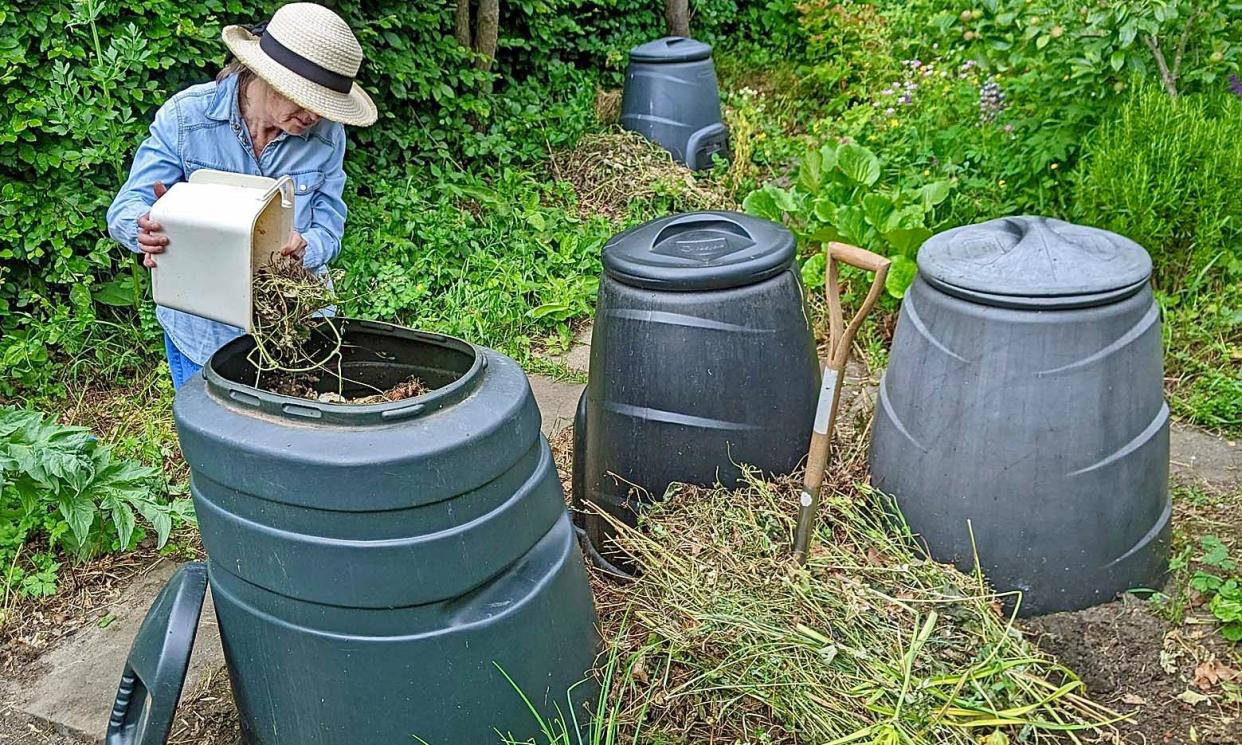Country diary: The compost bins are heating up and teeming with life

Four conical plastic bins, like baleful Daleks, each produce about a cubic metre of compost every year. In go weeds and kitchen vegetable waste; 12 months of organic alchemy later, out comes some high-quality crumbly soil improver. These bins are the hottest biodiversity hotspots in our garden.
Inside, in air foetid with fungal decay, an ever-changing invertebrate workforce gathers: woodlice and slugs, writhing brandling worms, fruit fly larvae, minute springtails, large-fanged, predatory orange centipedes. During last summer’s drought, a toad took up temporary residence, growing fat on slugs. Sometimes, when I lift the lid, woodmice peer up at me, so I tend to pause for a moment before hurling in another bucket of vegetable peelings, giving them time to dash for safety. There must be several PhD theses to be written about food webs and cycles of life and death in that clammy Stygian darkness.
During the unseasonably cold weather of early June, for the first time in 40 years of composting, I found a colony of black garden ants when I lifted the lid. Ants are barely active below 10C and need temperatures of around 20C to breed, so while the garden chilled in single-digit temperatures they took advantage of the heat generated by decay to set up a nest. Each day the colony grew larger, while they tended white grubs that soon became silken-coated pupae. In the beginning, there was panic when I lifted the lid and they carried their offspring away to safety, but soon they’d covered them with a dome of fine soil, laboriously built from particles carried in their jaws. An amazing feat of coordinated social enterprise and construction, carried out in total darkness.
This week the first really hot summer days arrived at last, with temperatures inside the bin reaching 40C. Too hot now for ants. They’ve left, carrying their brood, relocating under a paving slab. The bin is back in commission: time to lift the lid, take a step back for a moment to let the cloud of escaping fruit flies disperse, then peer inside again to see what’s going on. Every trip down the garden with a bucket of kitchen waste can be a journey of discovery.
• Country diary is on Twitter at @gdncountrydiary
• Under the Changing Skies: The Best of the Guardian’s Country Diary, 2018-2024 (Guardian Faber, £16.99) is published on 26 September; pre-order now at the guardianbookshop.com and get a 20% discount

 Yahoo News
Yahoo News 
